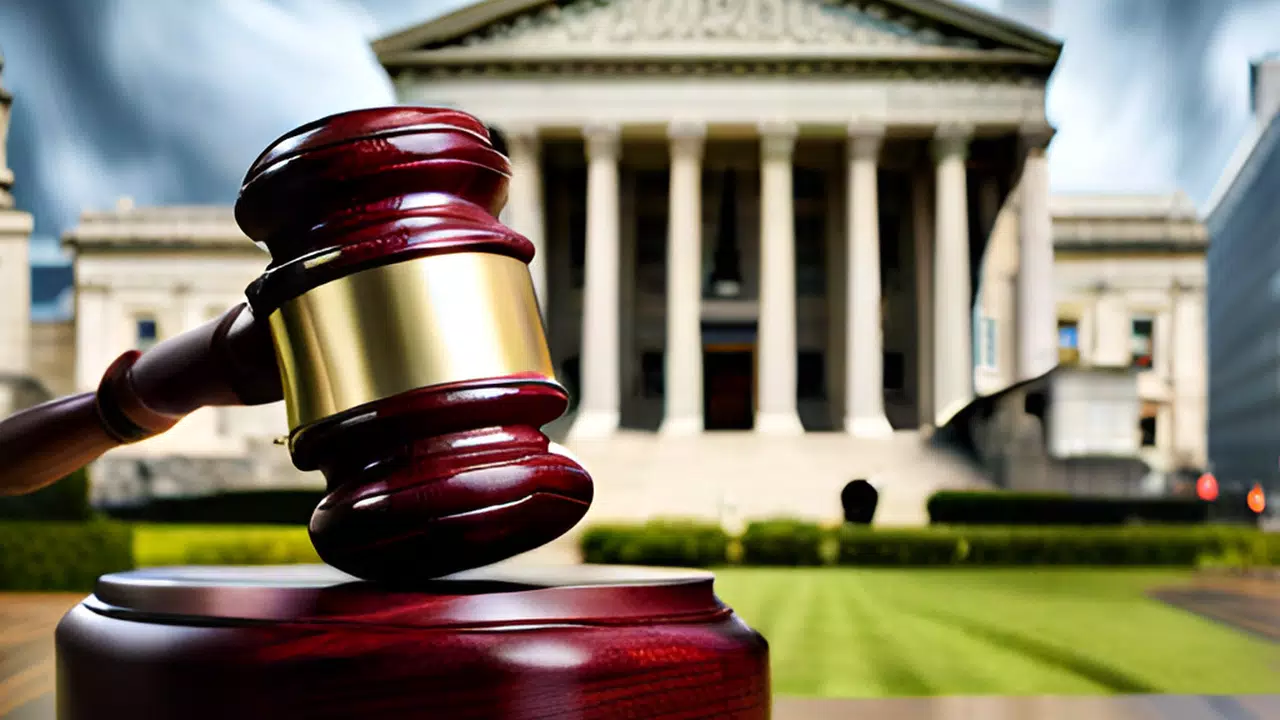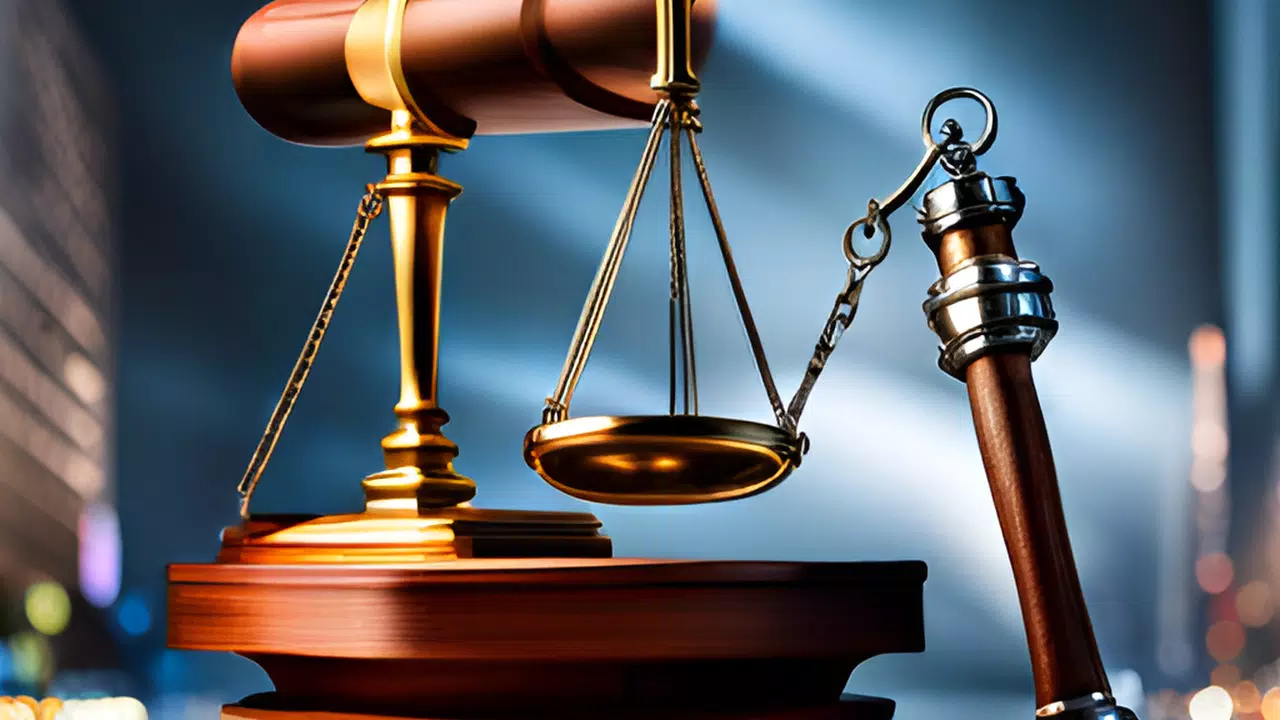
The Concept of Criminal Liability
Criminal liability is an essential aspect of criminal law that determines the legal consequences for individuals who commit crimes. It establishes a relationship between the state and the offender, ensuring that justice is served and legal order is maintained.
Criminal Liability and Illegal Acts
Criminal liability arises when legal provisions are not complied with by its addressees. In other words, when someone commits an illegal act or a crime, they become criminally liable. The purpose of criminal liability is to impose penalties, sanctions, or other measures that help prevent the commission of similar crimes in the future.
Sanctions and Accountability
Sanctions are an inevitable consequence of criminal liability. They vary in severity depending on the specific crime committed. Sanctions can range from fines to imprisonment or even the death penalty. Criminal liability ensures that offenders are held accountable for their actions and that they bear responsibility for the consequences of their crimes.
Purpose of Criminal Liability
The purpose of criminal liability is to prevent the commission of new crimes and maintain legal order. Criminal law establishes a set of rules that individuals must follow and defines a specific set of sanctions that will be applied in case of non-compliance with these rules. This system ensures that individuals understand the consequences of their actions and do not act in ways that could harm others or society at large.
Removing Criminal Liability
There are several situations where criminal liability can be removed, such as amnesty, reconciliation, and prescription. Amnesty is a general pardon granted by authorities for certain offenses or classes of offenders. Reconciliation involves resolving disputes between victims and offenders, either through compensation or mediation. Prescription refers to situations where the offender's legal responsibility can be removed after a certain period has passed since the commission of the crime.
The concept of criminal liability is pivotal in upholding legal order and ensuring justice is served in our society. It establishes a clear code of conduct with explicit rules that individuals are expected to adhere to. Furthermore, it institutes a system of repercussions for those who breach these laws. It is imperative that the criminal justice system embodies fairness and equilibrium, taking into consideration the unique circumstances of each criminal act. This ensures that offenders are justly and impartially held accountable for their actions. As responsible citizens, we are duty-bound to uphold the law and deter criminal activities, thereby safeguarding the security and well-being of our communities.

Prescription of Criminal Liability: An Overview
The prescription of criminal liability is a legal provision that extinguishes an individual's criminal responsibility after a certain period has elapsed. This legal concept is based on the idea that punishment loses its effectiveness if it is enforced after a long interval from the commission of the crime. The prescription of criminal liability is closely connected to the reason for criminal repression, which aims to prevent future crimes. Understanding how prescription works can help individuals navigate the complexities of criminal law and liability.
The Purpose and Benefits of Prescription
The purpose of prescription is to ensure that the application and execution of punishment align with the intent of criminal law. When a significant amount of time has passed since the commission of a crime, prescription resolves any conflicts arising from the criminal act, which could otherwise lead to legal disputes and prolonged trials. Additionally, prescription helps prevent situations where innocent individuals are prosecuted after an extended period based on inadequate evidence or incomplete information. This provision contributes to ensuring justice is served and that legal proceedings are fair and transparent.
Timeframes and Criteria for Prescription
Different jurisdictions have varying time limits and criteria for prescription. In many countries, minor offenses such as speeding tickets or petty traffic violations have shorter prescription periods compared to more serious crimes like rape, murder, or terrorism-related offenses. For instance, in the United States, federal crimes including embezzlement or fraud have a five-year statute of limitations, whereas serious crimes like murder or treason do not have a time limit for prosecution. Similarly, in Brazil, drug-related crimes have a maximum statute of limitations of eight years, while crimes against life, such as murder, can be prosecuted at any time.
Exceptions to Prescription
Prescription does not apply to all types of crimes; some serious offenses may not be subject to prescription due to their nature or severity. Crimes against humanity, war crimes, and genocide are examples of offenses that may not be subject to prescription. Furthermore, some jurisdictions may have exemptions for certain types of crimes such as sexual abuse, which have no statute of limitations in most countries.
Why is Prescription Important?
Understanding the statute of limitations is crucial for individuals navigating the legal system, as it helps them navigate the intricacies of the justice process. Those accused of a crime must be aware of the prescription period for their specific offense, as it can greatly influence their defense strategy. Additionally, victims of crimes need to know the statute of limitations for their particular offense to ensure that justice is served and their rights are protected. In conclusion, a comprehensive understanding of criminal liability prescriptions is essential for upholding accountability, justice, and fairness within the legal system.

Factors Affecting the Prescription of Criminal Liability
The prescription of criminal liability is not a one-size-fits-all concept. Various factors can influence the prescription period and its applicability to specific crimes. These factors help determine whether or not an individual's criminal liability can be removed.
The type and severity of the crime play a significant role in determining the prescription period.
The type and severity of a crime are primary factors that determine the prescription period. In general, serious offenses such as murder, sexual assault, or genocide have no limitations on prosecution. On the other hand, less serious crimes, such as minor theft or traffic violations, may have much shorter prescription periods. For example, in some U.S. states, the statute of limitations for misdemeanors is one year, while for felonies, it can be seven years or more according to NOLO.
Different jurisdictions have different laws and regulations governing the prescription of criminal liability
Different countries have varying laws and regulations regarding the prescription of criminal liability. For instance, in Italy, the statute of limitations ranges from six months for minor offenses to 20 years for very serious crimes. In contrast, in Japan, as reported by the Japan Times, the statute of limitations typically falls between three and 15 years, depending on the severity of the offense. Consequently, it is imperative to familiarize oneself with the legal framework of each jurisdiction to determine the applicability of the prescription period.
Factors such as repeat offenses, attempts to evade justice, and ongoing criminal activity can impact the prescription period.
There are certain factors that can impact the statute of limitations for a crime. A repeat offender or someone attempting to evade justice may face an extended statute of limitations. If the perpetrator continues their criminal activity, the statute of limitations may be suspended until they cease their actions. For instance, in the Netherlands, the statute of limitations can be suspended for up to 20 years if the suspect remains actively engaged in criminal behavior, according to Dutch penal code.
Some crimes may be exempt from prescription due to their serious nature, such as murder or genocide.
Certain crimes are so severe that there is no statute of limitations, which means they can be prosecuted at any time, regardless of when they were committed. These heinous crimes include murder, genocide, crimes against humanity, and war crimes. The absence of a statute of limitations for these crimes underscores their gravity and ensures that those responsible are brought to justice, no matter how much time has elapsed since the crime was committed, according to the International Criminal Court.
Prescription periods may be extended or suspended under certain circumstances
Prescription periods can be extended or suspended under certain circumstances. For example, in France, if the victim was a minor at the time the offense occurred, the prescription period is extended. In some cases, the discovery of new evidence that could not have been obtained at the time of the crime can also lead to an extension or suspension of the prescription period according to French Criminal Code.
The availability of new evidence can also affect the prescription of criminal liability
New evidence that emerges even years after a crime was committed can lead to the revival of a criminal case and affect prescription periods. For example, in Argentina, the discovery of new evidence in a murder case that had previously been closed due to the expiration of the statute of limitations resulted in the case being reopened and the perpetrator being convicted according to The Guardian.
Understanding these factors is crucial for individuals seeking to understand their legal rights and responsibilities. The prescription of criminal liability is a complex issue that can have serious consequences. Therefore, it is essential to seek legal advice if you are unsure about your obligations or rights in relation to this topic.

Challenges and Critiques of Prescription in Criminal Liability
While the prescription of criminal liability serves a specific purpose in criminal law, it is not without its challenges and critiques. Understanding these concerns can help create a more balanced view of this legal concept and its implications for society.
Potential for Offenders to Escape Punishment
One critique of prescription is that it may allow offenders to escape punishment due to the passage of time. The concept of criminal liability prescription has been in use for over a century and is still used today in Latvia, but it has been a topic of debate and criticism. This is because prosecution can only be initiated during the period prescribed by law. If that period elapses, the right to prosecute is extinguished. Critics argue that this allows offenders to evade punishment by simply waiting for the limitation period to pass.
Victims may also feel that justice has not been served if an offender's criminal liability is removed through prescription. This can result in an erosion of public trust in the criminal justice system and may lead to frustration and a sense of powerlessness among victims.
The Effectiveness of Prescription
The effectiveness of prescription in achieving its intended purpose is often debated. While it may serve to reduce the workload of the courts by preventing old cases from being prosecuted, there are concerns that this may come at the expense of justice. Opponents of prescription argue that it is an arbitrary method of limiting prosecution that does not have any basis in justice or proportionality.
Furthermore, prescription may lead to potential loopholes in the legal system that can be exploited by offenders. For instance, offenders may be able to manipulate the system by delaying a trial or fleeing from jurisdiction until prescription takes effect.
Varying Laws and Regulations
The varying laws and regulations surrounding prescription across different jurisdictions can create confusion and inconsistency. For example, The Supreme Court of the Republic of Lithuania interprets legal norms broadly, leading to an ambiguous practice where a person is not recognized as guilty, but the termination of proceedings does not equal acquittal. Such ambiguity can be problematic as it may lead to legal consequences and restrict the right to be fully acquitted after being suspected and later accused in court.
Lack of Public Awareness
There may be a lack of public awareness about the concept of prescription, leading to misconceptions and misunderstandings. This can be particularly problematic as it may lead to unnecessary delays, a lack of confidence in the legal system, and a lack of trust in the authorities.
Addressing these challenges can help improve the efficiency and fairness of the criminal justice system. For instance, educating the public about criminal liability prescription and its implications can help raise awareness and reduce misunderstanding. Additionally, reviewing and updating current legal frameworks may help ensure that prescription is being applied effectively and in line with justice and proportionality. Only by working together can these challenges be addressed and overcome, leading to a more just and equitable society.

Balancing Prescription with the Goals of Criminal Law: Achieving Fairness and Efficiency in the Criminal Justice System
As with any legal concept, striking a balance between the benefits and challenges of prescription is essential. This balance ensures that the goals of criminal law are met while taking into account the rights and interests of both the offender and the victim.
Prescription must be balanced with the need to ensure justice and maintain legal order.
Prescription refers to the time limits within which legal actions must be taken. In criminal law, prescription periods ensure timely case processing and provide legal certainty for victims and perpetrators. However, it is crucial to balance prescription with ensuring justice, even if it means handling cases outside the prescribed timeframe. This is especially important in criminal cases, where the stakes are high, and justice delayed is justice denied. In many countries, the law permits exemptions when prescription would result in an unjust outcome.
The goals of criminal law must be considered when determining prescription periods.
Prescription laws must consider the objectives of criminal law, encompassing general and special prevention. General prevention aims to deter others from committing comparable crimes, whereas special prevention targets preventing a specific offender from committing additional crimes. In both instances, ensuring that offenders face justice and serve their sentences is crucial. If prescription laws constrain this possibility, they might contradict these objectives. Consequently, prescription laws should not be evaluated in isolation but within the context of these broader objectives.
The rights of victims should be taken into account when assessing the appropriateness of prescription in specific cases.
Prescription periods are put in place to safeguard both parties from uncertainty and offer legal certainty. However, it is crucial to consider the impact of these time limits on victims of crimes who may require additional time to come forward and seek justice. In certain countries, the prescription periods for grave offenses such as sexual assault have been extended, recognizing that victims may need more time to gather the courage and strength to come forward. Striking a delicate balance between legal certainty and the rights of victims is essential, ensuring that the latter is never compromised.
Legal systems should strive for consistency and clarity in their prescription laws to prevent confusion and exploitation.
Prescription laws can be complex, and the legal language used may not be easily understandable to the general public. This can lead to confusion and exploitation of victims who may not be aware of their rights or the time limits within which they can act. Hence, legal systems should strive for clarity and consistency in their prescription laws. This can be achieved through education and awareness campaigns that help the public understand the benefits and limitations of prescription periods.
Public awareness and understanding of prescription should be improved to eliminate misconceptions.
Public awareness campaigns can help dispel misconceptions about prescription laws. Some individuals may wrongly assume that prescription periods hinder the ability to bring offenders to justice, fostering a sense of mistrust in the criminal justice system. In reality, these periods are implemented to ensure swift case resolution while safeguarding the rights of both the offender and the victim. Through educational initiatives, we can enhance trust in the system, correct misconceptions, and guarantee that cases are handled efficiently.
Ongoing review and analysis of prescription laws can help identify areas for improvement and ensure their effectiveness.
Like any legal concept, prescription laws must continually evolve to remain effective. Ongoing review and analysis are essential in identifying areas for improvement, such as extensions of prescription periods in certain cases or enhancing public education campaigns. Improving these aspects of prescription laws will contribute to a fairer and more efficient criminal justice system.
In conclusion, finding a balance between prescription and ensuring justice is served is crucial within the criminal justice system. Prescription offers much-needed legal certainty, but it must be weighed against broader objectives such as general prevention while simultaneously guaranteeing the rights of victims. Legal systems should strive for clarity and consistency in their prescription laws while enhancing public awareness to dispel misconceptions and foster greater trust in the legal system. Regular review and analysis of prescription laws can help maintain their effectiveness and ensure they continue to serve the interests of all parties concerned. Achieving this balance can lead to a fairer and more efficient criminal justice system that upholds the interests of everyone involved.
